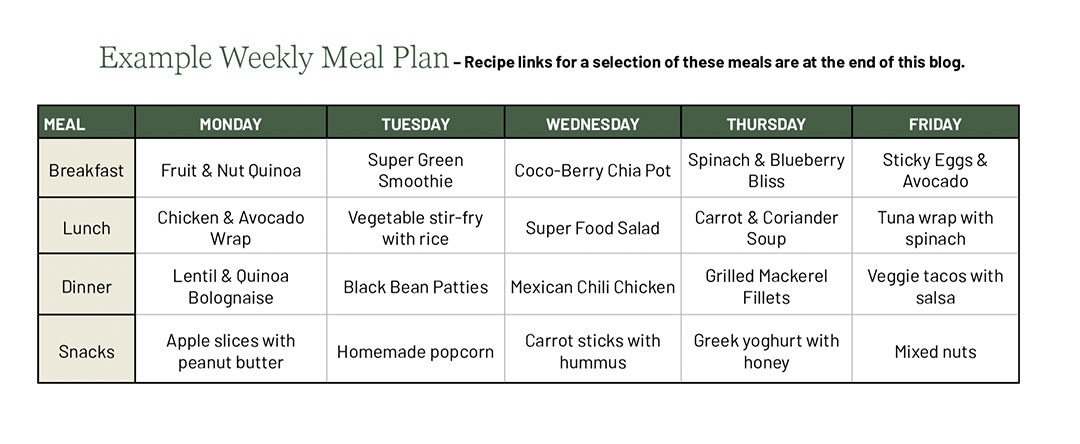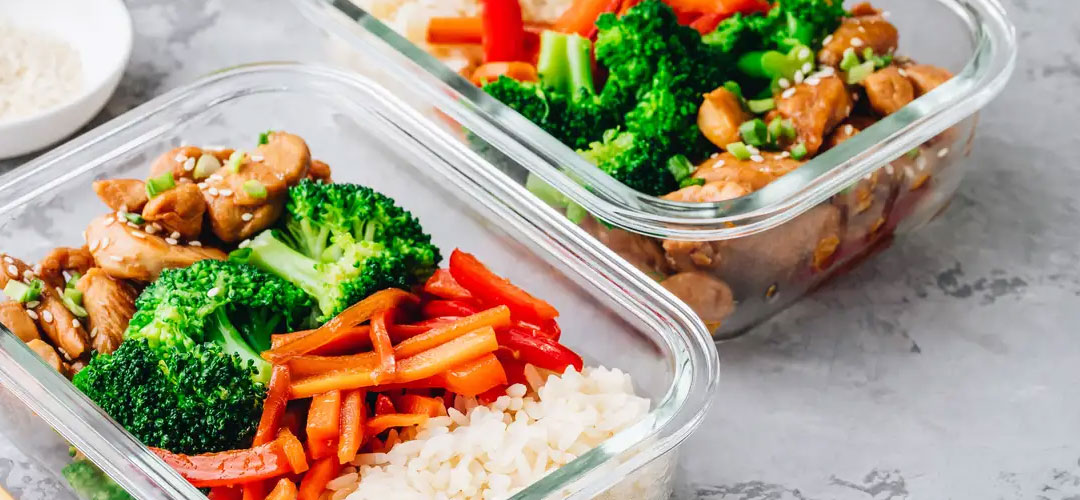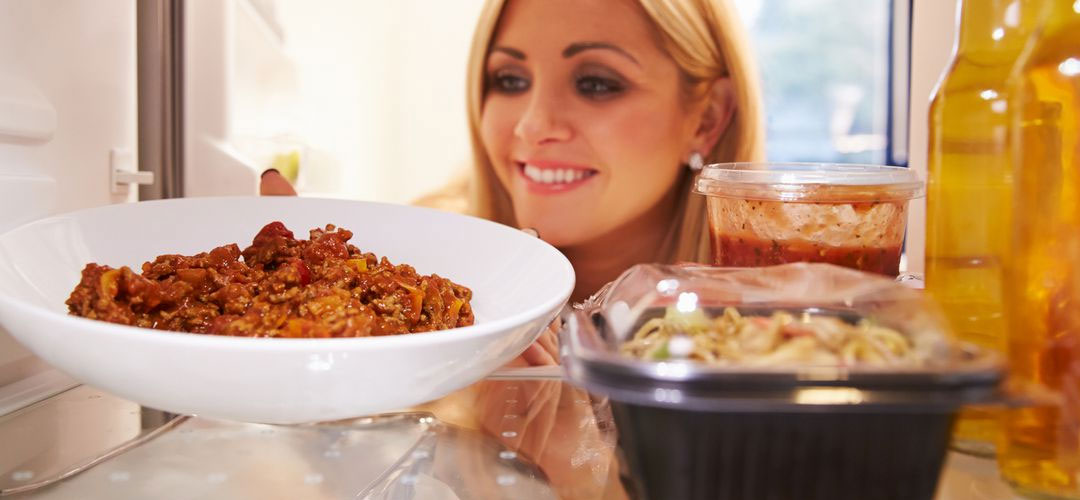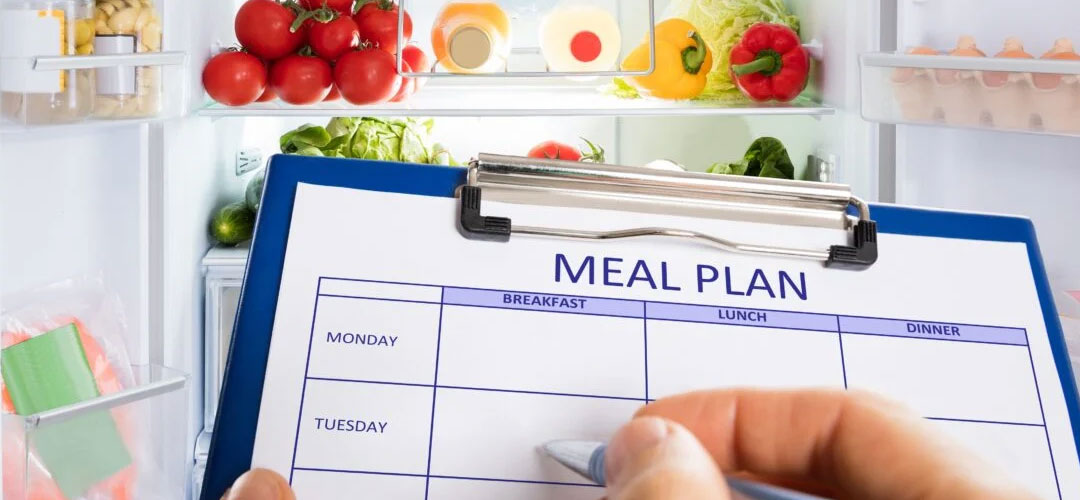
Eating nutritious meals is key to maintaining health, but it can feel like a challenge, especially on a tight budget.
The good news? With a little planning, you can enjoy balanced, delicious meals without overspending.
Meal prep is an excellent way to save both time and money, reducing food waste and making it easier to stick to healthy eating habits. Here’s how to get started with healthy meal prep on a budget.
• Plan Your Meals for the Week
The foundation of budget-friendly meal prep is planning. By creating a weekly meal plan, you can save on trips to the shops, buy only what you need, and avoid impulse purchases. Start by writing down all meals you’ll need, including breakfasts, lunches, dinners, and snacks. Decide on a few recipes that use overlapping ingredients to stretch your budget further.
-
- Choose simple recipes that require fewer ingredients.
- Focus on meals you enjoy and will be excited to eat.
- Make a shopping list based on your weekly plan to avoid unnecessary purchases.

• Shop Smart
Once your meal plan is ready, it’s time to go shopping. Following a list will help you avoid impulse buys, especially on items that don’t contribute to your meals for the week.
-
- Buy in bulk for pantry staples like grains, beans, and spices.
- Consider frozen produce for fruits and veggies, which can be more affordable than fresh and often have a longer shelf life. Perfect if you’re making smoothies or soups too!
- Choose generic brands instead of name brands; they’re often just as good and cost much less.
• Choose Budget-Friendly Ingredients
Choosing affordable ingredients is essential for staying within your budget. Focus on whole foods that provide good nutritional value and can be used in multiple recipes.
-
- Beans and lentils are affordable, protein-packed staples that work in soups, salads, and stews.
- Whole grains like rice, quinoa, oats, and pasta are versatile and filling.
- Eggs are a cheap protein source that can be used in numerous dishes, from breakfasts to dinners.
- Seasonal produce is typically cheaper, fresher, and more flavourful. Look for fruits and vegetables that are in season.
- Frozen fruits and vegetables are usually less expensive than fresh, and much more economical.

• Batch Cook and Freeze Meals
One of the best ways to save time and money is to cook in bulk. Prepare larger portions of recipes and freeze them in individual containers for quick, ready-made meals. Freezing extends the shelf life of your food and reduces the risk of waste.
-
- Soups, stews, and curries are ideal for batch cooking and freezing, as they often taste better after the flavours have melded together.
- Cook a large batch of grains like rice or quinoa at the beginning of the week. They can be used as a base for many different meals.
- Freeze proteins like beans, cooked chicken, or tofu to use in future meals. This helps prevent spoilage and cuts down on prep time.
• Prep Ingredients Ahead of Time
Prepping ingredients in advance can make your cooking process quicker and easier. This doesn’t mean you have to prepare full meals in one go; even just washing, chopping, or cooking certain ingredients can save time and help you stick to your plan.
-
- Chop vegetables such as carrots, bell peppers, and cucumbers and store them in the fridge. These are great for snacks, salads, and quick stir-fries.
- Cook proteins like hard-boiled eggs or grilled chicken that can be easily added to different meals.
- Divide snacks into portions to avoid overeating and make them easy to grab on the go. For instance, portion out nuts or cut up fruits and store them in containers.

• Make Use of Leftovers Creatively
Avoiding food waste is essential for eating well on a budget. One way to prevent waste is to repurpose leftovers in creative ways. Leftovers can be transformed into new meals with minimal effort, giving you variety without additional cost.
-
- Roast a batch of vegetables and use them throughout the week in wraps, salads, or as a side dish.
- Turn leftover chicken into chicken salad or a filling for wraps and sandwiches.
- Re-purpose rice or grains in stir-fries, burritos, or grain bowls.
• Invest in Reusable Containers
Reusable containers are a smart investment for meal prep. They’re perfect for portioning out meals and snacks, keeping food fresh, and making it easy to grab a meal on the go.
-
- Use glass containers with compartments to separate ingredients and keep meals fresh.
- Mason jars are ideal for salads, overnight oats, and snacks.
Freezer-safe bags can store soups, stews, and grains in flat portions that take up less space in the freezer. If you’re looking for something more environmentally friendly then washable freezer bags are fantastic, as they can be reused time and time again.

• Flavour on a Budget: Use Herbs and Spices
Eating healthy doesn’t mean sacrificing flavour. Fresh herbs and spices add flavour and nutritional value to your meals without costing much.
-
- Buy herbs and spices in bulk to save money. Consider getting multi-use spices like garlic powder, cumin, paprika, and oregano, which can be used in many dishes.
- Fresh herbs can often be grown at home, even on a windowsill. Basil, mint, and parsley are easy to grow and add a burst of flavour to any dish.
- Season with citrus like lemon or lime, which adds brightness to meals and is often cheaper than bottled dressings or marinades.
• Use Inexpensive Superfoods for Added Nutrition
Incorporating superfoods into your diet can be done affordably by focusing on less expensive options. These nutrient-dense foods can boost the health benefits of your meals without blowing your budget.
-
- Oats are high in fibre and affordable. Use them for breakfasts, smoothies, and even as a filler in recipes.
- Canned beans and lentils offer protein, fibre, and iron at a low price.
- Sweet potatoes are versatile, nutrient-dense, and can be used in a variety of dishes.
- Spinach is affordable and nutrient-packed; add it to smoothies, soups, or scrambled eggs.

• Stick to Your Budget and Adjust as Needed
It’s important to track your spending on food, to understand where you can make adjustments. Monitor what you’re buying and make sure it aligns with your weekly meal plan. If you find that certain ingredients or meals are consistently costly, adjust your plan to incorporate more budget-friendly options.
Healthy meal prep on a budget is achievable with the right planning and shopping strategies. By focusing on whole foods, prepping in bulk, and re-purposing leftovers, you can enjoy nutritious meals without overspending. Remember, the key to success is consistency, so stick with your meal plan, and don’t be afraid to get creative with ingredients you already have.
With time, meal prepping will not only save you money but also help you maintain a healthier diet, reduce food waste, and make eating well a seamless part of your weekly routine.
Try Some of our Recipes
Breakfast
- Fruit & Nut Quinoa
- Super Green Smoothie
- Coco-Berry Chia Pot
- Spinach & Blueberry Bliss
- Sticky Eggs & Avocado
Lunch
Dinner


